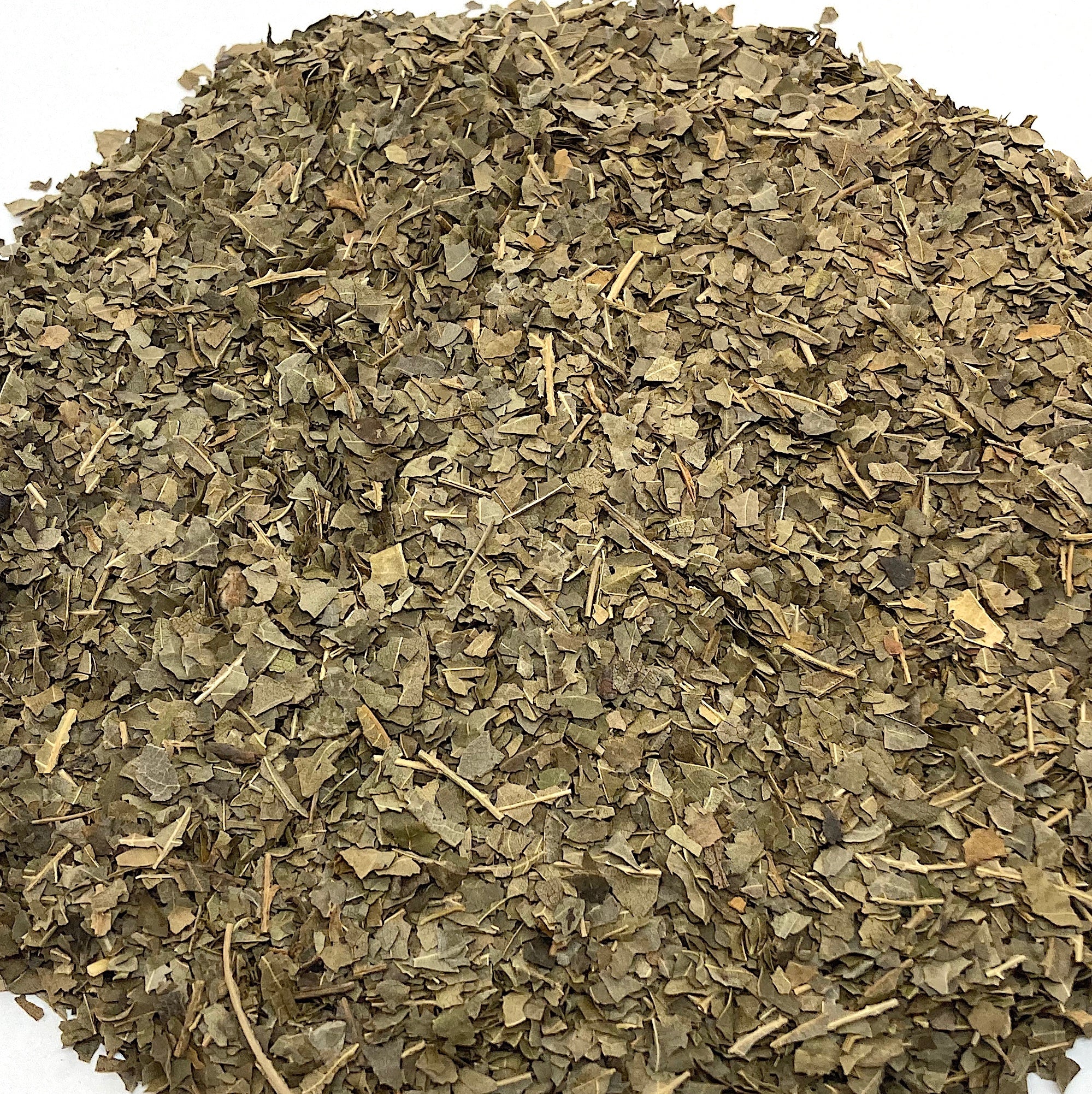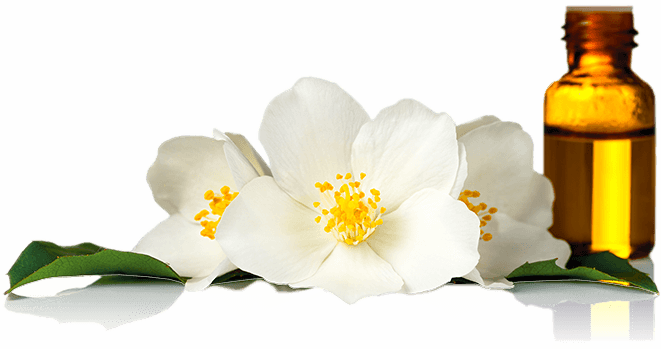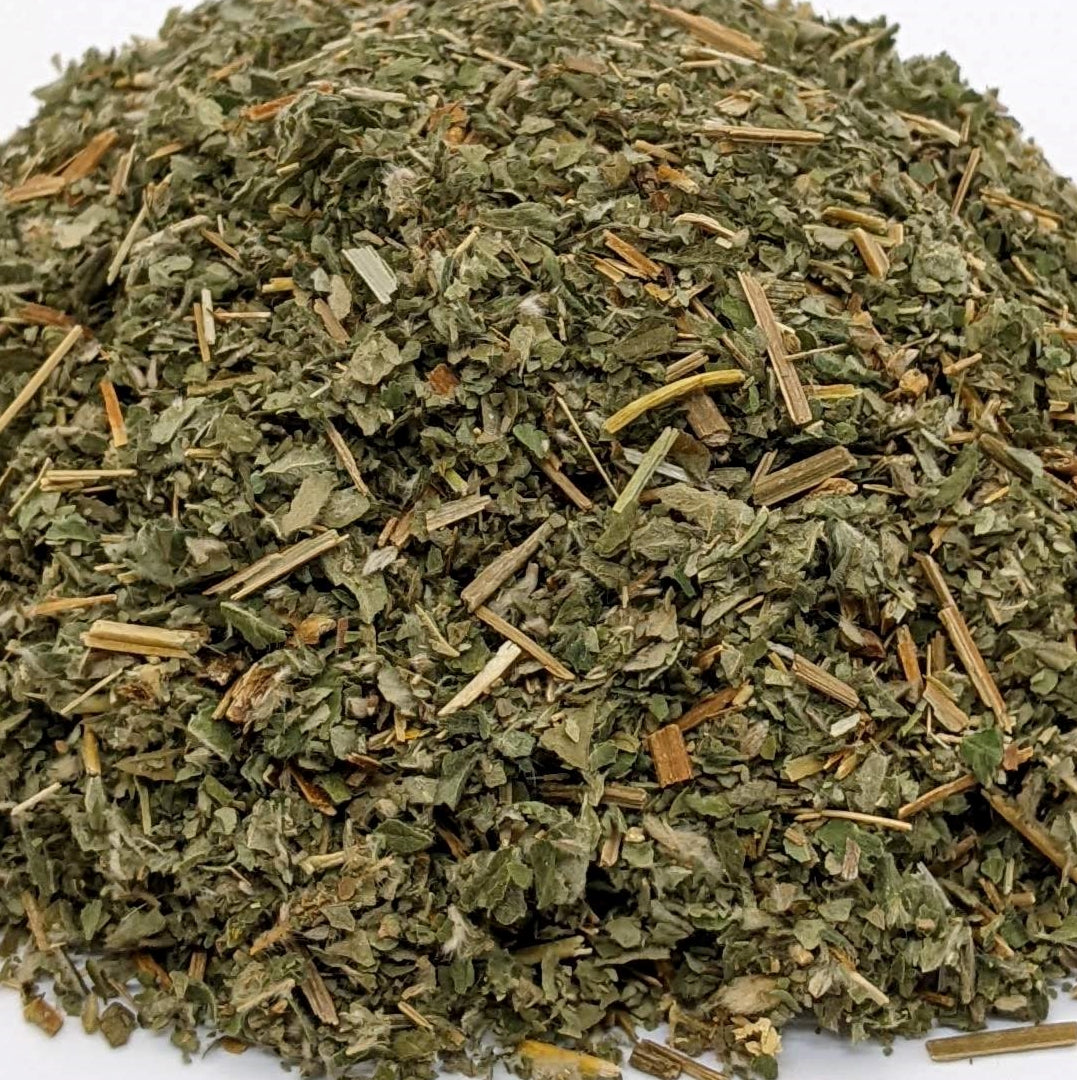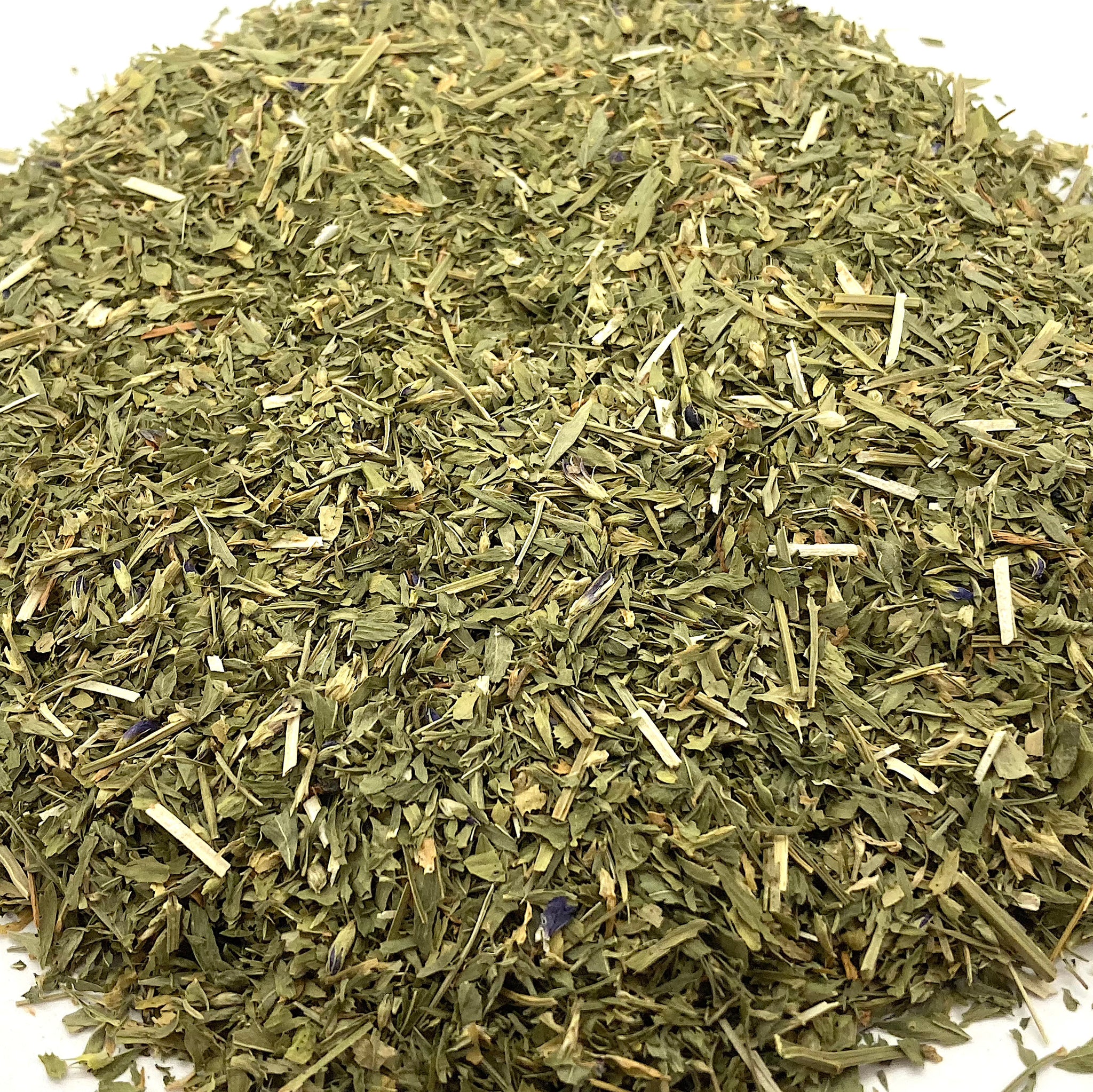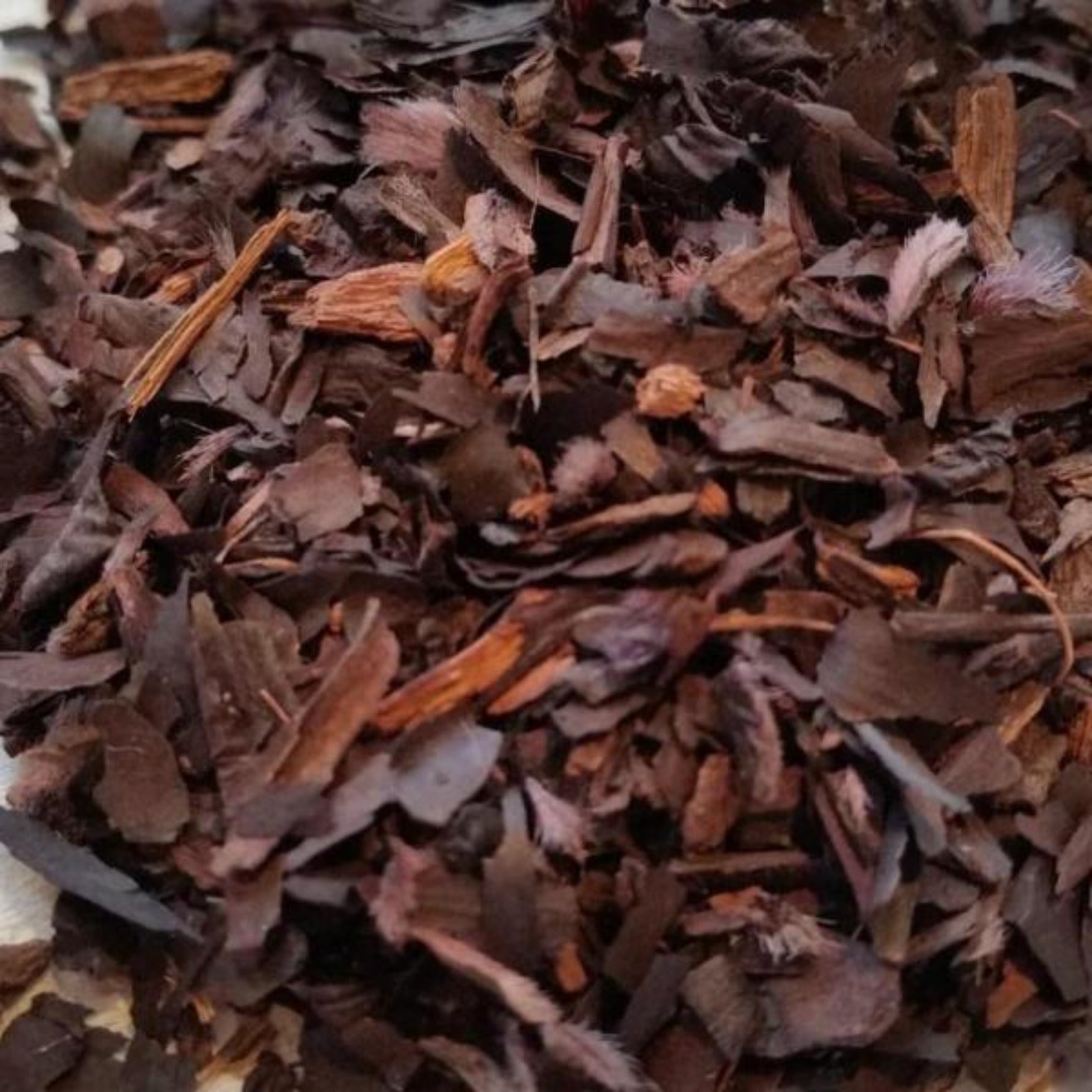Description
USA. Black Walnut (Juglans nigra) Leaf, Cut and Sifted, Wild Harvested
Common names: American Walnut, Akjrot Chaal, Haade Okhar, Hei Che Tao, Noyer Noir, Orech Tschernij, Schwarznuss, Carya
Family: Juglandaceae
Black Walnut is a large deciduous tree native to eastern North America, growing mainly in open areas along roads, fields, rivers, and forest edges. All of its parts except the nut meat are pervaded by a distinctive pungent scent. It is cultivated in the US and Europe for its delicious nuts and its high-quality timber, and as an ornamental tree.
Black Walnut leaves were used by Native Americans to repel fleas and as a green dye. Houma Indians used Black Walnut leaf tea to treat high blood pressure.
A strong tea of the leaves can be applied as a topical astringent, antiseptic, and antifungal for acne, ringworm, sunburn, eczema, psoriasis, itchy scalp, and as an insect repellent.
All parts of Black Walnut contain juglone, a substance sometimes used as a dye, food coloring, or insecticide, and reportedly active against internal parasites and H. pylori (the bacteria associated with stomach ulcers). Juglone, secreted by Black Walnut trees into the surrounding soil, prevents most other plants from growing nearby.
*These statements have not been evaluated by the FDA. These products are not intended to diagnose, treat, cure or prevent any disease.

